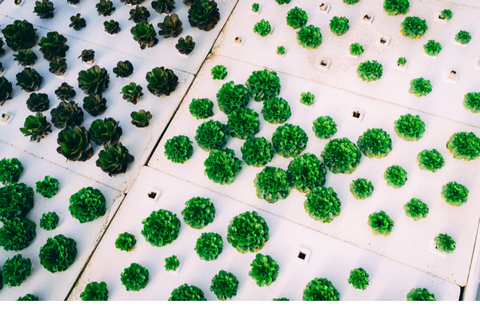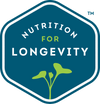Ethical Omnivore
Omnivore
Have you ever wondered what the original human diet was composed of? Over the years, the human diet has evolved drastically from where it first derived. The term for this diet is the omnivore diet. With the ever-changing trends in the nutrition world, the omnivore diet has stayed tried and true as one of the most prevalent eating patterns amongst humans.
The Omnivore Diet
An omnivore diet includes both plant and animal foods such as berries, nuts, vegetables, legumes, leafy greens, meat, dairy, and fish. It is the most common diet among humans.¹ An omnivore can follow a diverse and beneficial flexitarian diet, containing foods from all five major groups: dairy, protein-rich foods, fruits, vegetables, and grains. By prioritizing plants and whole foods, following the omnivore diet can allow you to meet all your nutritional needs.²
The Longevity Diet combines components of the omnivore diet with the science-backed benefit of The Longevity Diet. Here at Nutrition for Longevity, we offer the opportunity for a pescatarian meal plan. When choosing a pescatarian meal plan from N4L, you are consuming an omnivore diet.

Environmental Effects
When considering your diet decision, it is important to factor in the environmental implication of the food you are eating.
The first environmental consideration is the amount of land used. The more land used for industrial agriculture, the greater the negative impact on the environment. Large amounts of land for industrial agriculture disrupts wild habitats.³ How can you help? Opt to support local, smaller-scale farms. Family farms are more productive per unit of land, making the omnivore diet more sustainable.⁴
Another environmental factor to consider is water usage. Choose to source your food from farms that use more sustainable water systems such as drip irrigation and rainwater watering for crops.³ Well-managed animal grazing can be sustainable and regenerative by building soil, storing more carbon, and building biodiversity.⁴
Here at N4L, regenerative and sustainable farming is the foundation of our promise to promoting longevity. We utilize aquaponics at our farm in Long Valley, New Jersey. Aquaponics combines conventional aquaculture of raising fish in tanks with hydroponics, the cultivation of plants in water. Aquaponics creates a symbiotic environment for fish and plants to grow and thrive. Aquaponics uses 90% less water than non-hydroponic farms and encourages a 30% more rapid plant growth, making it a sustainable practice.²

How to Be an Ethical Omnivore
Every food choice matters not only to our health but also to the environment. There are many sustainable food choices for those looking to maintain an omnivore diet.
To promote being an ethical omnivore, we can focus on eating more plant-based protein sources. Sustainably grown plant-based options such as beans, peas, quinoa, hemp seeds, and nuts help significantly decrease our carbon footprint.³ Prioritizing plant-based protein sources in your diet does not mean you have to eliminate all animal foods.
Shopping locally is another sustainable way to maintain an omnivore diet. Opting for local shops keeps money within your community to keep it thriving. Prioritize farmer's markets and local produce shops for your in-season produce. Keeping your money close to home by buying local produce decreases the emissions needed to transport and import goods.⁴ Shopping local is both financially and environmentally beneficial for our communities.
No matter what lifestyle or food patterns you follow, consider the environmental and ethical implications. Using these tips, we can still enjoy nutritious food choices while staying conscious of how our food choices may affect the environment.

At N4L, our commitment to ethics begins with the soil we use all the way to the food we serve you. To learn more about our mission and commitment to ethical farming practices, please visit us at N4L and get started with our pescatarian meal plan today!
References:
- Omnivorous Diet. LIVESTRONG.COM. https://www.livestrong.com/article/315493-omnivorous-diet/. Accessed April 7, 2021.
- Sustainable. Nutrition For Longevity Meal Delivery. https://nutritionforlongevity.com/pages/sustainable. Accessed April 8, 2021.
- Preiato D. How to Be an Ethical Omnivore. healthline.com. https://www.healthline.com/nutrition/ethical-omnivore. Published May 18, 2020. Accessed April 7, 2021.
- Why Ethical Omnivorism. Ethical Omnivore. https://www.ethicalomnivore.org/why-ethical-omnivorism/. Published February 29, 2020. Accessed April 7, 2021.
- Klemm Rby S. Sustainable Eating. EatRight. https://www.eatright.org/health/lifestyle/culture-and-traditions/sustainable-eating. Accessed April 7, 2021.




